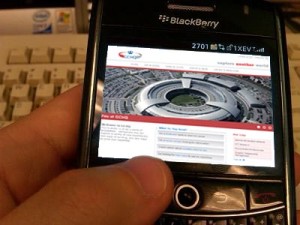Revealed: Spying on your mobile
 Germany’s Süddeutsche Zeitung newspaper has revealed a list of the companies collaborating with the NSA and the British spy agency, GCHQ to pass on all your private communications to secretive government agencies. Some of the UK’s largest telecommunications companies have given GCHQ unfettered access to their network infrastructure including undersea fibre optic cables carrying phone calls and internet traffic.
Germany’s Süddeutsche Zeitung newspaper has revealed a list of the companies collaborating with the NSA and the British spy agency, GCHQ to pass on all your private communications to secretive government agencies. Some of the UK’s largest telecommunications companies have given GCHQ unfettered access to their network infrastructure including undersea fibre optic cables carrying phone calls and internet traffic.
This programme has been planned since at least 2009 and for almost two years now, GCHQ has been able to store copies of all data transmitted along these cables and store it for up to 30 days. At no point in time has the UK government made its citizens aware that this has been taking place. The companies revealed to have been giving up their users’ data include Vodafone and BT as well as Verizon Business in the US.
GCHQ has gone to great length to hide the identities of the companies involved. Internal documents claim that this is done for reasons of sensitivity as breaking the news could lead to high “high-level political fallout”. Even in internal documents, Vodafone has not been explicitly names – instead it is referred to by its codename “GERONTIC”. GCHQ plans to massively expand this information gathering in the future.
This news will dismay anyone concerned with privacy, civil liberties and the overreach of national governments. This almost certainly breaches the Data Protection Act. But each of the companies is legally obliged to hand over their data to GCHQ and they are also prevented by law from revealing the existence of these spying programmes. According to the Guardian, GCHQ is handling 600 million “telephone events” each day, has tapped more than 200 fibre-optic cables which deliver more than 21 petabytes of data a day – equivalent to sending all the information in all the books in the British Library every 7.5 minutes.
Edward Snowden, the American computer analyst who revealed the details of these government spying programmes, is now finally out of the Moscow airport departure lounge. However, he is wanted in his home country and has nowhere to live until he receives asylum from a nation state. The information he helped to publicise also shows that 300 analysts from GCHQ and 250 NSA analysts had direct access to search and sift through all the private data collected under this programme. These telecoms companies are even letting the spying agencies access information that didn’t originate from their users but that passed through their networks nonetheless.
What do you make of this gross abuse of power? Is Big Brother already here? Do we as UK citizens and customers of telecommunications companies have a right to expect a decent level of privacy? What can we do if we disagree with this? And is there any defence for such wide scale and untargeted surveillance of the general public?



Recent Comments